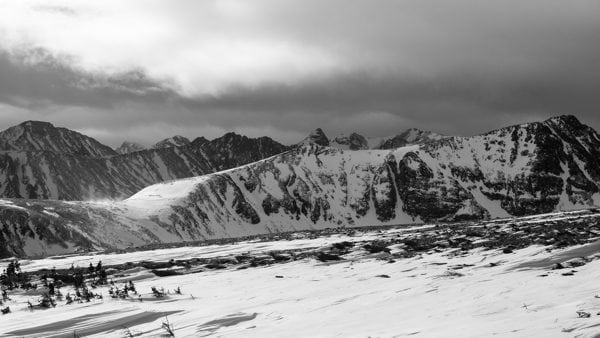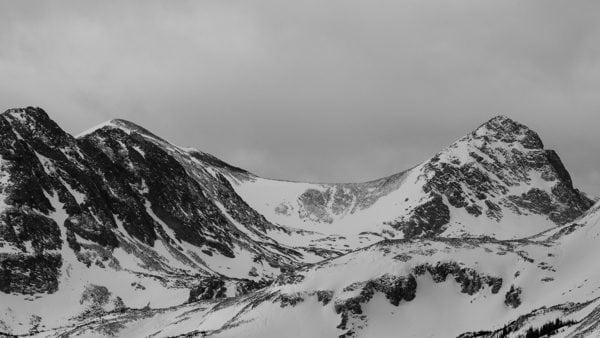I set off from the trailhead on the packed, icy singletrack. The skins on my skis grate the surface of the snow in a saccaded glide. Conditions are not great. The temperature hovers around 0 degrees Fahrenheit. The winds are blustery, kicking up unpleasant swirls of cold dust even in the seclusion of the forest. I grunt along, exuding more effort than seems necessary for my pace.
The tip of one of my skis catches a crusty slab of snow which yanks me off my feet into deep powder. I thrash around awkwardly, trying to straighten myself up, but fail as my hands sink further beneath me. I lay there helplessly for a few minutes, snow filling the gaps around my gloves, pants, and shirt. I reach for one of my poles, manage to prop myself up on it, grab hold of a tree, and rise to a standing position. I am irritated far in excess of the triviality of the situation.
To be honest, I am surprised and slightly troubled by the acuteness and rawness of my feelings. I tend to think of myself as someone who rarely expresses extremes in emotion or at least not on the negative end of the spectrum.
For some reason, since I have finished the Tour de 14ers in late August, I have trended more often toward these poles. The highs have been powerful, filled with clarity and joy, yet they are frequently overshadowed by intense lows that are confusing and chaotic.
These feelings were triggered in the mountains, when I was alone, vulnerable, and with nowhere to hide. Opportunities for real, honest conversation with oneself are rare. I believe this is due to the fact that it is uncomfortable to truly look at who we are, but also because of the general busyness of our daily lives.
Being in the mountains alone offers me a framework for internal dialogue that I find hard to replicate in other contexts. Out there, everything is simplified. There is space to think, to be myself. There is no judgement. Having the privilege to spend an entire month mostly alone in the mountains was a highly transformative experience, all the facets of which I am still trying to comprehend.
One of the tendencies I have is to want to impose my desires and pre-conceived notions of what I want to get out of the experience on the mountain as opposed to listening and letting the environment teach me.
On the first half of the Tour de 14ers, I very much had my own agenda, ticking off peaks as if I were part of an event. I fought the weather and the clock, creating a great deal of stress for myself. Gradually, though, I began to surrender to the natural rhythms, being more observant of my surroundings and how it was affecting me rather than how I was meeting the external expectations of the challenge. This was a profound shift in perspective for me and one that is difficult to reconcile within the confines of everyday life.
Part of the reason for this is that this feeling of attunement is directly linked to prolonged immersion in the wild while under a certain amount of duress. Essentially, I break myself down enough over an extended period of time to reach a state of realness and honesty–an incredibly powerful feeling. The longer and more intense the experience, the harder it is to rekindle that sentiment after the fact and balance it with life outside of that context.
Today’s ski outing is a perfect example of this dilemma. I set off with the intent of getting a little exercise and enjoying some reflective space. Instead of letting the experience unfold, I spend most my time being annoyed at the snow.
The mountains are simply a mirror of the mind–impermanent. Sometimes they are calm and soothing, other times they are turbulent and destructive. The lessons are there, but only if we care to listen.
Call for Comments (from Meghan)
- What have the mountains taught you?
- Do you ever find yourself trying to force your own expectations on your experience in a remote and wild place instead of letting those places shape you and your experience?


